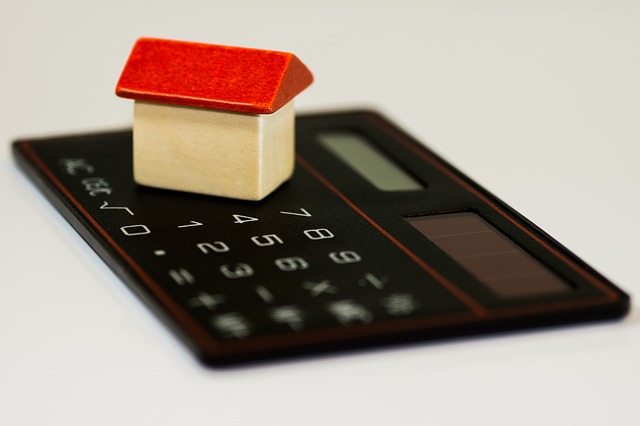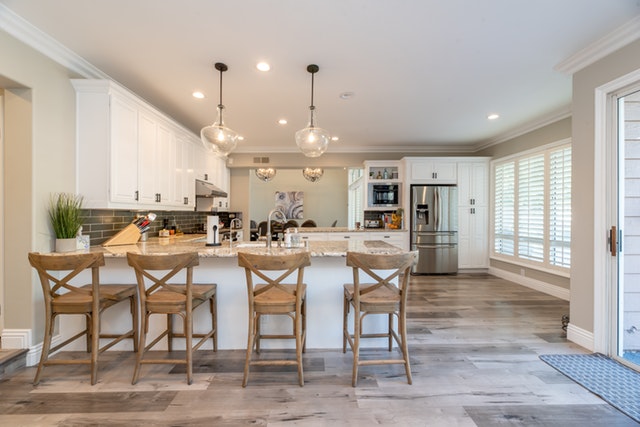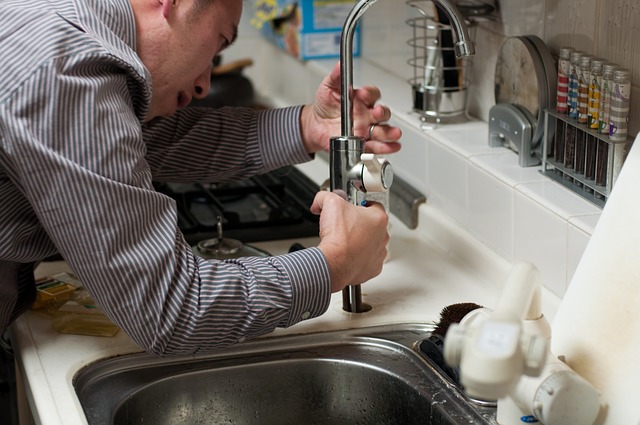Buying a home in Charlottesville could be one of the biggest financial commitments on your list. So it’s absolutely crucial to clearly define your financial and personal goals before you make up your mind.
You should consider key factors such as how long you intend to stay in Charlottesville and if you’re ready to take on the responsibility of maintaining a home.
Also, you should consider other things such as the amenities you want in a home, your preferred location, and how long you’ll have to save for a down payment – if you’re yet to do so.
Why You Should Buy a Home in Charlottesville!
Typically, there are several key reasons why you should consider buying a home in Charlottesville. The city is a predominantly ethnically-diverse place and boasts of one of the shortest commute times in the United States.
On the average, commuters spend a mere 19.01 minutes to work every day. A less stressful day on the road means you’ll have more time for yourself and your loved ones.
Charlottesville is a predominantly white-collar city. A massive 90.12% of the city’s entire workforce is employed in white-collar jobs. An impressive stat that’s significantly higher than the national average.

This is why Charlottesville is home to many professionals, office workers, sales, and service providers.
In addition, artists love Charlottesville! The city has more than 90% of artists, designers and people employed by media firms compared to other communities across the country. Also more people in this city are employed in math and computers than 95% of the cities across the United States.
According to Livability, the median list price for homes in Charlottesville is $285, 300. The median salary is $49,775. Depending on your salary, you can figure out which housing option is suitable for your budget. This is also one of the key reasons you need a good credit score.
What’s Your Credit Score?
Lenders are interested in your creditworthiness. They want to know if you will be able to repay the loan you’re applying for. Your credit report will reveal the key information lenders are interested in. So, checking your credit score will help you figure out your financing options.
Lenders will use your credit score (alongside other factors) to determine your loan pricing and to determine if you‘re eligible for the mortgage you want or not.
Before the lenders start checking, request for your credit score from the three major credit bureaus TransUnion, Equifax, and Experian. Also, inquire from your bank or Credit Card Company if they have a program that allows free access to your credit score or credit report.
In addition, you can get your credit reports for free from each of the three major credit bureaus every 12 months. If you observe any inconsistency, reach out to each of the agencies to report the error. The higher your credit score, the better your chances of getting the loan you need with the best terms and rates.
Have You Created A Housing Budget?
Aside figuring out how much home you can afford in Charlottesville, it is absolutely crucial to consider other costs. These include association and homeowners fees and having some extra amount of money for maintenance costs.
So, in addition to your down payment, you should budget $15,000 to $25,000 to cover any emergency maintenance and closing costs.
As such, your housing budget should start with the highest amount of loan you’re eligible for. Then, figure out what the monthly mortgage payment adds up to – and if your finances can handle it.

Normally, lenders don’t consider factors such as groceries, monthly bills, tuition, day care, utilities, and other similar financial responsibilities. As such, the onus is on you to do the math and come up with a good figure you can comfortably afford.
Also, make up your mind on how much you can save for the closing costs, down payment and the maintenance costs going forward.
So, make sure you’re pre-approved before you start house hunting with a real estate agent. This way, you won’t waste any time looking at homes you can’t afford.
How Much Have You Saved For A Down Payment?
Once you have determined your home buying budget, the next on your list is to save for a down payment – if you aren’t doing so already. Saving up for a down payment can take several months or even years.
So once you’ve made up your mind to buy a home in Charlottesville, start saving for a down payment as soon as you can.
You will be required to make a down payment of at least 20 percent to avoid private mortgage insurance or PMI. Some lenders can offer you a mortgage without a PMI, but you’ll have to make up for it by paying a higher interest rate.

However, if you don’t have up to 20 percent, there are several other options supported by the US government. If you opt for a Federal Housing Administration (FHA) Loan, most often you only need a 3.5% down payment.
Other loans such as the Department of Agriculture and the U.S. Department of Veteran Affairs known as USDA loans and VA loans don’t require any down payment.
So you should find a qualified loan officer in Charlottesville to help you figure out your most suitable option.
Are You Preapproved For A Mortgage?
Having a mortgage preapproval is an indication that a lender will offer you a loan in a certain amount for a loan. Mortgage preapproval is also crucial when you make an offer for a home; it gives you a better perspective of the amount of money you can afford.
As such, you’ll have to find an experienced mortgage lender to walk you through all available options and their entire costs. Also, you should ask about what incentives are available to you as a first-time homebuyer.
Consider shopping around for a mortgage with at least three or more mortgage brokers or lenders to get the lowest possible rate.
Hire a real estate agent
A real estate agent who knows the length and breadth of the city of Charlottesville can be the key to finding your dream home and negotiating with the seller on your behalf. It is absolutely crucial that the real estate agent you hire is on your side.
The agent must be able to help you make informed decisions based on current market trends (considering all other crucial factors) and refer you to other reputable professionals such as home inspectors, appraisers, contractors and title companies.
Make sure the agent you hire a strong track record in the Charlottesville real estate market and know the city inside out.
See as many homes as you can
As soon as you hire a real estate agent, they’ll probably create a profile for you in local Multiple Listing Services in Charlottesville. The agent can also set you up on automatic searches for homes that meet your expectations.
After viewing available homes, you can make a shortlist and let the agent know the precise homes you’ll like to visit. Some homes look absolutely different from what they seem on pictures.

You can also go online and search for homes too. Another good option is to drive around the neighborhoods you’re interested in to see what’s for sale. Attending open houses is another great idea too.
While searching, make sure you have a shortlist of the most crucial things you really want in a home.
Make an Offer
Once you find your preferred home don’t hesitate to make an offer – your agent will help with that. A complete offer package should include the following:
- Your complete offer package
- Your preapproval letter
- Proof of funds for a down payment (this can give you an edge in a competitive market)
- A personal letter to the seller (this can make your offer stand out)
- Terms or contingencies
In many cases, the seller has about 24 hours to counter your offer.
Get a home inspection
A home inspection makes it possible for you to get an entire picture of the home’s structural and mechanical defect – if there’s any. Based on your agreement with the seller, you may be required to complete the home inspection within 10 – 14 days after signing the purchase agreement.
Though your real estate agent is most likely to recommend a home inspector, you should do a bit of a background check before hiring anyone.
So go online and read reviews about the recommended inspector, ask for previous clients’ references and check their credentials. Also, take a look at the inspector’s list to see what they check and what isn’t covered.
Negotiate credit and repairs
If the home inspection report indicates issues in the home, some could be minor or major. The minor ones could be a sign that you’ll have to do some repairs in the future. However, the major ones must be fixed before your lender eventually finalizes your loan.

Your real estate agent can help you negotiate the repairs. There are always two options when this happen. The seller can either do the repairs or you can fix them as request for a cash-back credit at closing.
Some sellers will turn down any deal that requires extensive repairs – this is why a home inspection is absolutely crucial.
Get your financing
At this stage, you may be required to provide more paperwork while your lender completes the underwriting process. Some of the documents you’re required to provide may include:
- Bank statements
- Tax returns
- Additional proof of income
- Gift letters
- Written statements about major deposits in your bank account
At this point, you’ll need to avoid running up credit cards, taking out new loans, closing credit accounts or changing jobs. Doing any of these may have a negative impact on your credit score or hurt your debt-to-income ratio which is bad for your final loan approval.
Close on your house
As soon as you meet all contingencies and the closing agent has given you the nod to go ahead, then you’re ready to make it official and close on your new home. This is the point where your lender issues a “clear to close” status on your loan.
In addition, your lender will provide you with a closing disclosure three business days prior to your closing date. Review this document carefully and to make sure closing fees and loan terms are the same, compare it to the loan estimate.
As soon as all the paperwork has been signed, the property is officially yours – now you can get the keys. Welcome to Charlottesville!



